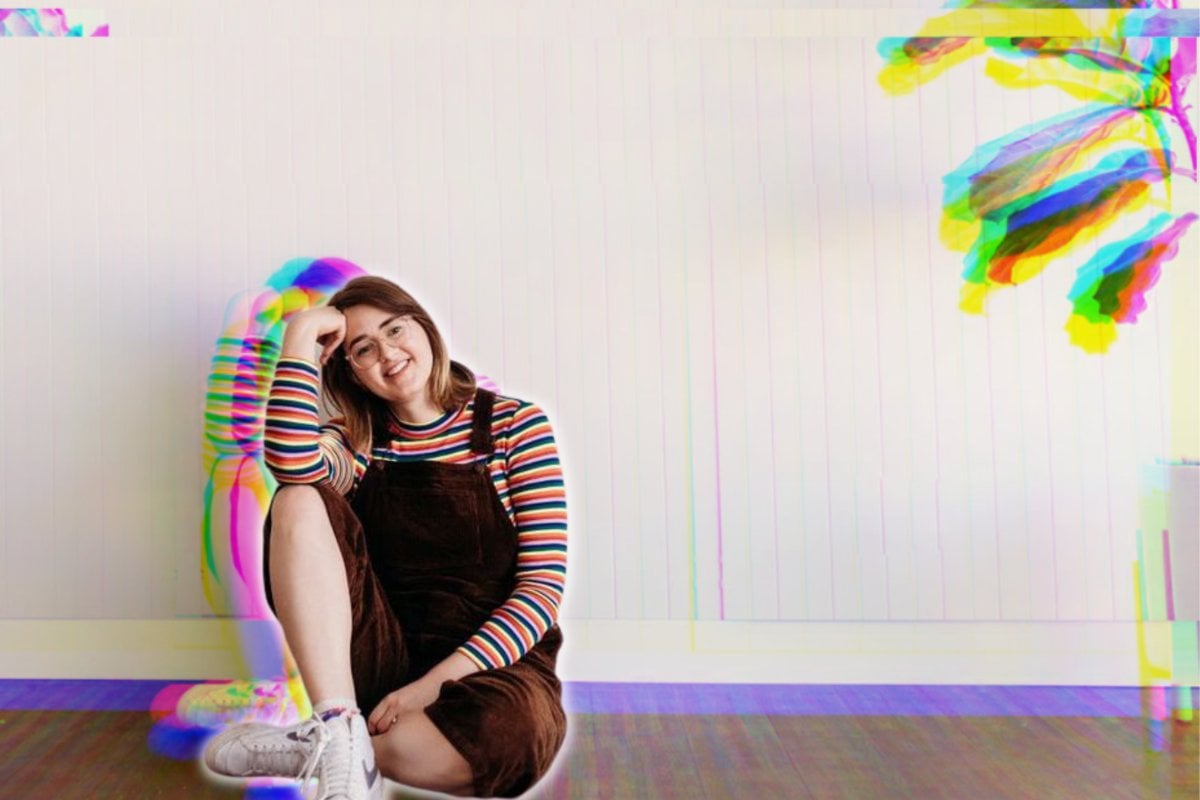
I’ve known I have OCD for a very long time.
At the age of 11, I was diagnosed with a classic case of contamination OCD – the 'germophobia' stereotype that pop culture knows and loves. I’d wash my hands up to a hundred times a day, have obsessive rituals around my bedtime routine and refuse to use public toilets.
When I ‘recovered’ from this in my later teenage years, I thought I was sorted. Society had me believe that the lack of visible compulsions excluded me from that diagnosis anymore. It took me almost another decade to realise that my OCD had just changed form. That I wasn’t a bad person. That intrusive thoughts were a part of my life, and that the echo chamber of my mind wasn’t a great place to be with them.
Listen: Penny Moodie speaks to Mia Freedman about her experience with relationship OCD. Post continues below.
This second chapter of my journey started a few years ago, triggered by an episode of Unforgotten, a UK crime series. In the show, a lady with dementia had forgotten she had buried a body in the backyard of her home. A thought crept up on me after watching: What if I had killed someone and forgotten about it?
This thought turned into an obsession, the obsession led to compulsions, and those compulsions led me to some very dark places. But they also taught me a lot. A lot about being human, and a lot more about OCD, mental health and how we, as a society, manage mental illness.
It’s been a journey. I’m still on it.
I want to mention that I'm not a mental health professional. A professional worrier and overthinker, yes, but, unfortunately, I’m not professionally trained in the ways of the brain, so what I say is by no means to be taken as advice or a replacement for treatment.